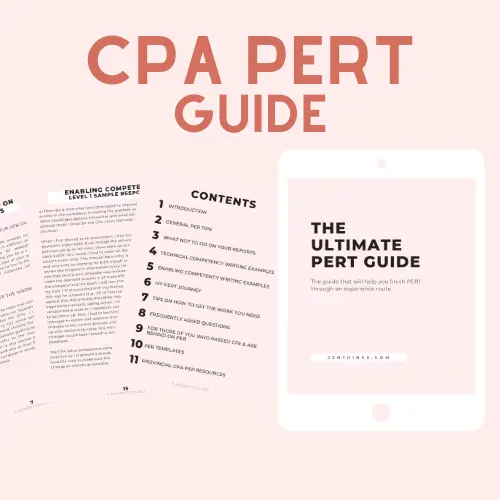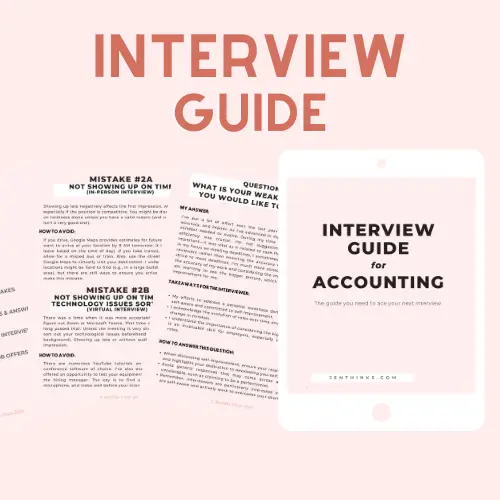I shared on my Instagram stories last week that I was attending the CFE Case Writing Practice Session. It was a one-and-a-half day event co-hosted by several CPA bodies on the west coast. The event started with an introduction webinar before the attendees worked on a Day 3 case (Chang ESL Inc; also available on the Capstone 2 module) on their own. We were encouraged to attempt the case under exam condition which I did (but the night before as it would have worked better for my schedule). The first day concluded with another webinar on marking cases in the afternoon. In addition to marking your own attempt, the attendees had to mark at least one other person’s attempt as part of the event over the weekend (so we also received a marked response). The second day of the event started with a webinar on the importance of mental health during CFE prep followed by a Q&A by a panel of successful CFE writers.
The event was very well-planned and well-run. I learned a lot about CFE prep that I will be sharing with you in this post.
Read all of my CPA CFE posts here
How Do I Know What CPA Standards or Legislation Are Tested On The CFE?
There is a section called technical update on the CPA Canada’s website. It outlines what standards and legislation are examinable for a specific CFE (and also PEP exams). For Sept 2021 CFE, COVID-19 impacts are not examinable. This means candidates are expected to respond the case as presented (e.g., macro economic factors).
I Missed The Case Writing Session – Can I Still Write The Same Day 3 Case?
Yes, the Day 3 case we wrote during the event is called Chang ESL Inc. It was one of the Day 3 cases on the 2015 CFE. It is included in the Capstone 2 module as ‘additional practice case’. Note, this case is optional so submission is not required.
How Many Cases Will I Get On Day 3 of the CFE?
As per the CFE blueprint, candidates can expect 3 or 4 cases for a total of 240 minutes on Day 3 of CFE. Each case will range from 45- to 90-minute long. However, the presenter has pointed out that he has not seen four Day 3 cases in past CFEs. Either way, the total duration is guaranteed to be 240-minute.
Lessons I Learned From Marking Someone Else’s Case
I learned about the importance of headers and simple (and I stress, SIMPLE) formatting. I am not saying this because it helps the marker to mark easier. Personally, I find it a lot easier to first populate headers based on my case outline before I start working on the AOs. This is because it helps me stay calm and organized. I understand time is of the essence for the CFE but doing this takes no time at all (compared to the benefits). In the next 2 months, we will all be doing a lot of marking and debriefing whether you have a study buddy or not. An organized response will help you stay on track and not miss any AO or any important mark-worthy point for an AO. There will be no marks awarded for NA or NC for Level 1, 2 & 4 (no mark for RC for Level 3 as well).
RELATED POST – CPA CFE Prep – Why Did I Decide to Study Without A Study Partner?
What Will I Have Access To During The CFE?
On the days of your CFE, you will be provided with the following:
- a laptop with numeric keypad with Folio Views installed
- the CPA Handbook and Income Tax Act will be imported into Folio Views for reference
- a hardcopy of the following
- the case
- the reference schedule
- a notebook
Note, a wired mouse is permitted but NOT provided; wireless mouse is NOT permitted.
What Does Level A, B & C Mean On The Competency Map?
To ensure your technical knowledge coverage is adequate, the Competency Map is your best friend. On there, you will notice that candidates are expected to know the competencies on different levels. Depending on your role, you might need Level A or only Level B of knowledge for Audit planning (CAS 300, Audit and Assurance Process c). To summarize, the levels mean the following:
Level C – you can retrieve or comprehend the knowledge and explain or describe the problems; however, the situations are routine (e.g., revenue recognition for a single year’s deal) and low in complexity.
Level B – you can analyze a problem using the knowledge and draw conclusion from your analysis; however, the situations are still more routine in nature
Level A – not only can you use your knowledge to analyze the problem and draw conclusion, you can also see some interrelationships between case facts
You Have Been Developing Your Enabling Competencies Through PEP & PERT – Why Are They Important For CFE?
For reference, the five enabling competencies are:
- professional and ethical behavior
- problem-solving and decision-making
- communication
- self-management
- teamwork and leadership
To succeed in the CFE, the two most important enabling competencies are problem-solving and self-management. Your problem-solving skill is important because no two cases are the same. This means regardless of how many cases you attempt during your CFE prep, you will not succeed in the CFE if you are not able to adapt and apply your knowledge to the case-facts provided. Also, because time is of the essence for CFE (just like PEP exam but even more challenging), your time management skill is going to be critical to your success. You need to master the skill of budgeting your time and sticking to your budget under stress.
What Did The Board of Examiners Have To Say To Past CFE Writers?
The Board of Examiners report is a 300+ pages document created by the Board of Examiners of CFE. You are not expected to read it at all (definitely not in its entirety) but it definitely contained a lot of useful information about the 3-day exam in general.
What I am about to share might come surprising for many of you: the lack of technical knowledge was cited only once in the last 7 CFEs to be a weakness of the CFE writers. At the same time, time management was cited 6 times out of 7 to be a weakness of the same group of writers. This should come as a reminder to you that technical knowledge is only part of the CFE. To succeed, you know to be able to apply the knowledge and basically play the game right.
How Do You Play The CFE Game Right?
The earlier you recognize the fact that passing CFE is not about providing a perfect answer, the more effective your CFE prep will get. The presenter of the CFE case writing session walked us through an example to demonstrate the following using a cash flow AO (MA):
- you can get a C (competent) even if you performed only 4 out of 7 calculations reasonably but provided a consistent conclusion
- the conclusion does not need to be 100% accurate, it just needs to be consistent with your analysis
- reasonable calculation means minor errors are acceptable
- also, not all calculations are weighted equally – the marking guide might specify 1 out of the 7 calculations to be non-negotiable for a C which means even if you did the other 6 accurately, you will only get a RC
- if you are wondering how would you know which one is non-negotiable? well, you will never know for sure but some triggers would be the relative amount ($500K revenue vs $10K marketing expense) or specific mention on the case
In summary, to win the CFE game is to understand how to get marks in the most efficient way possible. This will be a skill that takes time to develop hence the CFE prep. You have to trust the process.
What Are Some Important Things To Note When You Debrief?
- if you are marking your own cases (instead of having a study partner), make sure you do not award points to things ‘you thought about’ but not written in the response because the CFE marker will only see what is written down
- do not skip debriefing because it is more important than ever
- you know the rules I was talking about in the previous point? well, you don’t know what you don’t know
- the only way to know those rules is to mark your cases with the feedback guide and debrief your performance
- if you did not write the case under exam condition within the allocated time (e.g., 80 minutes on an 80 minutes case), your debrief will not be as effective
- this is because your performance will not reflect your true ability and as a result, not able to find a game plan to improve over time
How Do You Pass Day 2 & 3 Of The CFE? What Is A Passing Profile?
To pass Day 2 & 3 of the CFE (you can either pass both days or fail both days), you need to pass the following 4 levels:
Level 1 – Sufficiency
– passing this level depends on whether you have enough RC, C & CDs combined on both days
– it tests your overall competency at Core-level knowledge
– to pass this level, the marks you will be awarded for RC = C = CD
Level 2 – Depth
– passing this level depends on whether you have enough C & CDs combined under Financial Reporting )FR) or Management Accounting (MA)
– it test your competency in either FR or MA at Core-level knowledge
– to pass this level, the marks you will be awarded for C = CD
Level 3 – Role
– passing this level depends on whether you have enough C & CDs combined under your chosen Elective Role (Finance, Performance Management, Tax or Assurance)
– it tests your competency in your role at Elective knowledge
– Day 2 case is your only chance to pass this level and the role-specific AOs do not count toward what you need to pass Level 1 & 4
– to pass this level, the marks you will be awarded for C = CD
Level 4 – Breadth
– passing this level depends on whether you have enough RC, C & CDs combined in each of the 6 competencies
– it tests the breadth of your competency at Core-level knowledge
– to pass this level, the marks you will be awarded for RC = C = CD
There is a unique passing profile for each role for every CFE. However, the passing profile of the CFE was never released. This means we will never know how many RCs/Cs writers need to pass. However, the takeaways are:
- AOs are not weighted equally so more difficult AOs will be weighted more heavily for the passing profile
- this is why you should stay calm when you encounter a difficult AO because chances are other candidates feel the same
- you do not want NA or NC at all because they do not give you any mark for any of the 4 levels
- getting CD is nice but it is unnecessary; it often time means you spent too much time on the AO and maybe not enough on another
- you can’t avoid any competency otherwise you will fail Level 4 (which means you fail Day 2 & 3 of the CFE)
- this means you need to get out of your comfort zone and review technical strategically
- you need to trust the process of CFE prep that worked for many candidates – write, mark, debrief & review technicals
- there is no short cut but that also means you can succeed if you prepare properly



Comments are closed.